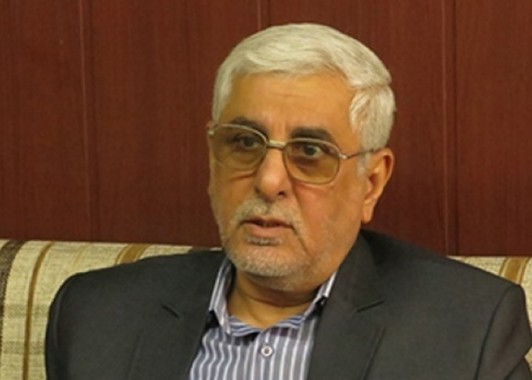
RNA – In an interview with Rasa News Agency, Hasan Hanizadeh, an Iranian international affairs analyst and political assistant at the al-Ahwaz World Network, referred to the results of the May 12th Iraqi parliamentary elections and said, “The necessary consultations have been initiated for the appointment of the prime minister by the Iraqi parliament’s victorious factions and there have been meetings between Nouri al-Maliki and Hujjat al-Islam Sayyid Ammar al-Hakim and Muqtada al-Sadr in regard to the appointment of a new prime minister.”
He argued that the Sairoun (“March Onward”) Coalition led by Muqtada al-Sadr has established the prerequisites for the continuation of the prime ministership of Haydar al-Abadi and said, “One of these conditions is the granting of key ministries such as the Ministry of Foreign Affairs, the Ministry of Economy, Trade and Industry, the Ministry of the Interior, the Ministry of Oil and the Ministry of Defence to the Sairoun Coalition and in this regard, there are disagreements with Haydar al-Abadi.”
Mr. Hanizadeh continued, “Haydar al-Abadi is not willing to go under the umbrella of Muqtada al-Sadr. For this reason, he began to consult with Sunni and Kurdish movements.”
He argued that the final conclusion has not yet been made regarding the appointment of the prime minister and added, “al-Abadi’s chance for another term in office as the prime minister is very likely.”
Regarding the politics of Muqtada al-Sadr, he said that the Iraqi politician is trying to create a series of differences between Iraqi Shi’ahs and such actions are an indication of political immaturity. Although, in this way, he is trying to establish Saudi policies in Iraq.”
Mr. Hanizadeh said that Muqtada al-Sadr’s visit to Saudi Arabia and his meeting with [Crown Prince] Muhammad ibn Salman in July 2017 had a great influence on the Iraqi election process.
The political analyst added that Saudi Arabia demanded that Muqtada al-Sadr create division among the Iraqi Shi’ah spectrum by dividing them into Arab and Persian Shi’ahs. “This is considered as dangerous action meant to disrupt the unity of the Shi’ahs of Iraq,” he said.
Expressing that there are a lot of problems facing the Iraqi government, Mr. Hanizadeh stated, “The reconstruction of Iraq will create problems for the incoming government, although the future government’s attempts to take a long step forward in welfare and public services and to bring all political spectrums towards unity are a complete position.”
Rasa News Agency
112/970